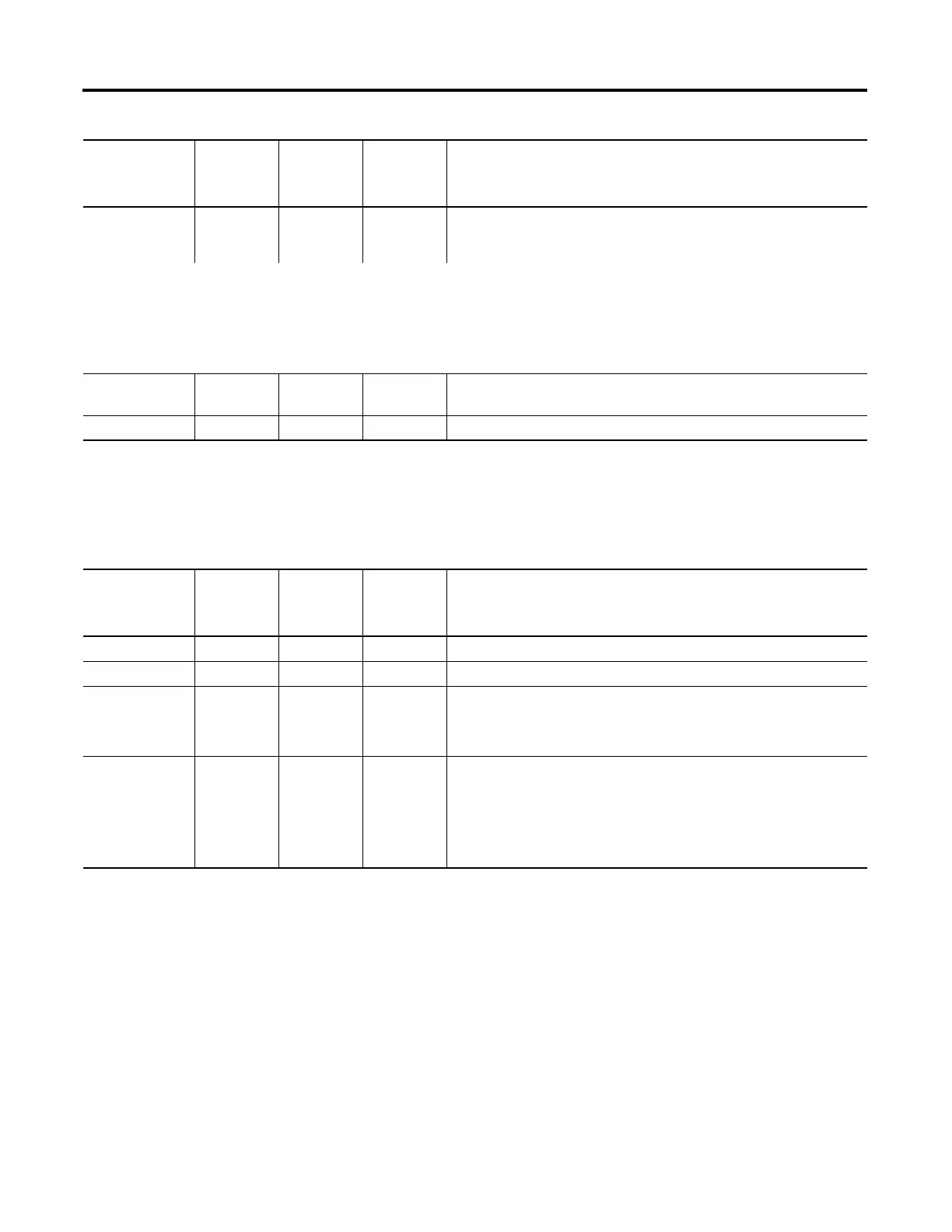208 Rockwell Automation Publication 1756-RM003N-EN-P - October 2011
Chapter 4 Input/Output Instructions (MSG, GSV, SSV, IOT)
Routine Attributes
The Routine object provides status information about a routine. Specify the
routine name to determine which Routine object that you want.
MinorFault
Record
DINT[11] GSV
SSV
GSV
SSV
Records minor faults for this program
We recommend that you create a user-defined structure to simplify access to the
MinorFaultRecord attribute:
Name Data TypeStyleDescription
TimeLow DINTDecimalLower 32 bits of fault timestamp value
TimeHigh DINTDecimalUpper 32 bits of fault timestamp value
Type INTDecimalFault type (program, I/O, and so forth)
Code INTDecimalUnique code for the fault (depends on fault type)
Info DINT[8]HexadecimalFault specific information (depends on fault type and code)
MaxScanTime DINT GSV
SSV
None Maximum recorded execution time for this program. Time is in microseconds.
Name String GSV GSV Name of the program.
Attribute Data Type Instruction
within
Standard
Task
Instruction
within
Safety Task
Description
Attribute Data Type Instruction
within
Standard
Task
Instruction
within
Safety Task
Description
Instance DINT GSV GSV Provides the instance number for this routine object. Valid values are 0…65,535.
Name String GSV GSV Name of the routine.
SFCPaused INT GSV None In an SFC routine, indicates whether the SFC is paused.
Value Meaning
0 SFC is not paused
1 SFC is paused
SFCResuming INT GSV
SSV
None In an SFC routine, indicates whether the SFC is resuming execution.
Value Meaning
0 SFC is not executing. This attribute is automatically set to 0 at the end
of a scan in which the chart was executed
1 SFC is executing. Step and action timers will retain their previous value
if configured to do so. This attribute is automatically set to 1 on the first scan
after a chart is unpaused.
